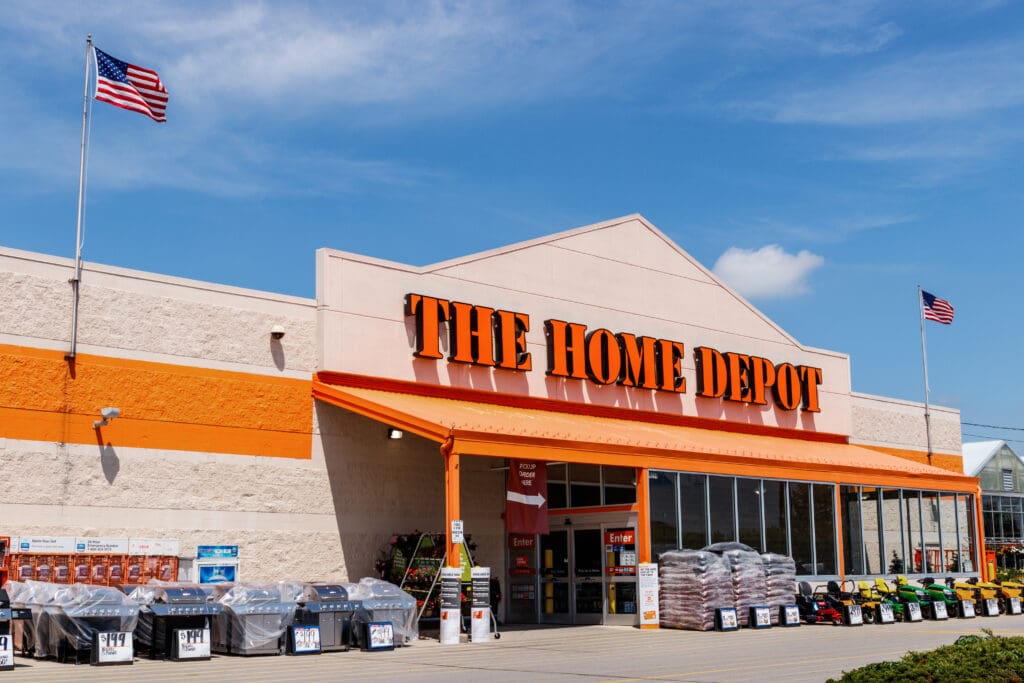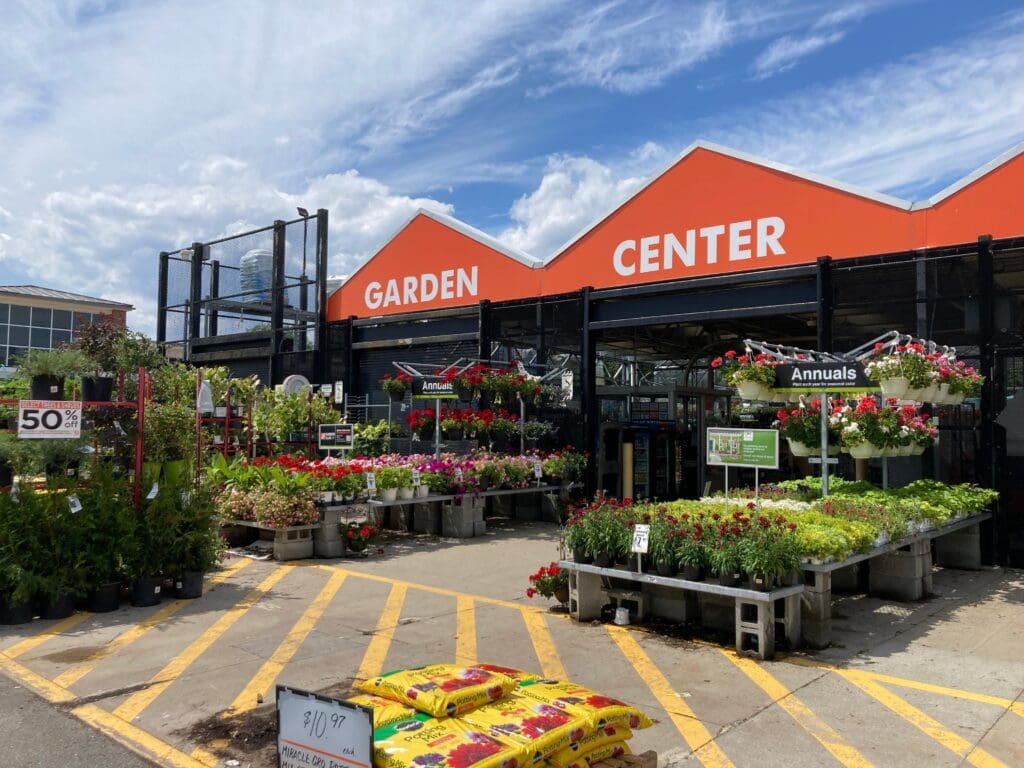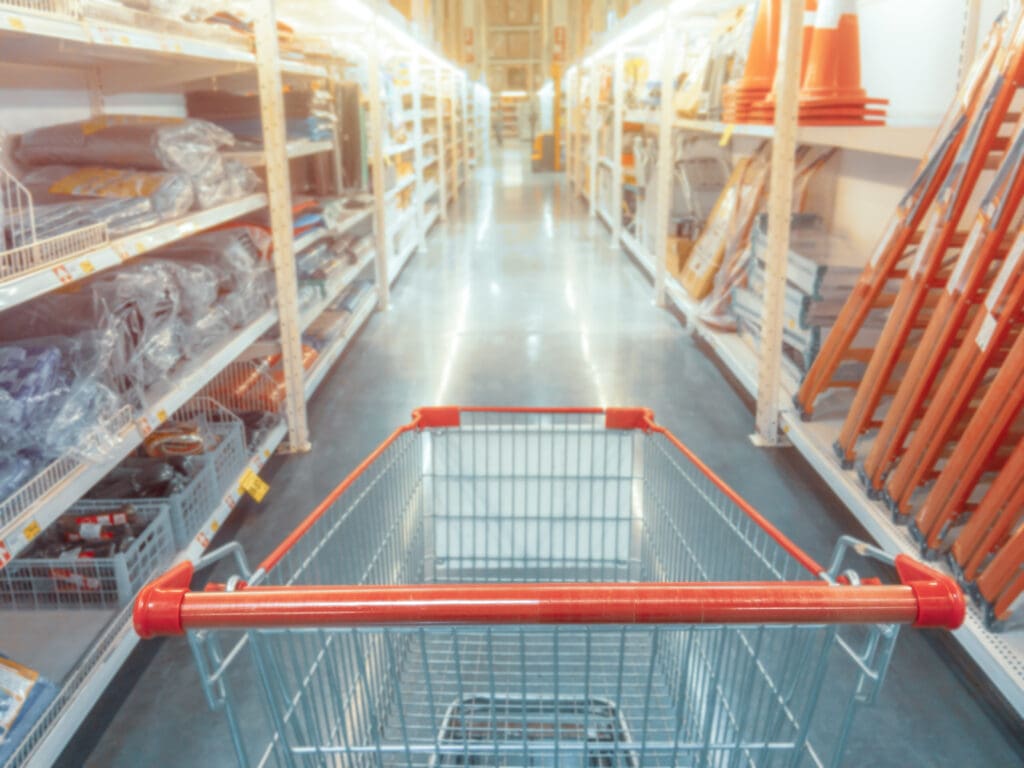If You Slip and Fall in Home Depot
Do-it-yourself culture is a key feature of modern American life. Some casual do-it-yourselfers maintain their home appliances by acquiring new parts. Dedicated amateur craftspeople may engage in ambitious home or garden renovations. Some tinker, build, and repair as a hobby. Others seek to limit their personal waste by fixing the things they have rather than throwing them out. Some would simply prefer to save money on their regular home maintenance, cutting their own lawn or cleaning their own gutters. Whatever your attraction to the DIY movement, there’s a decent chance your next project will lead you to the doors of the local Home Depot. This hardware superstore chain is a fixture in commercial districts all across America. But their wide spaces and cluttered aisles can lead to serious accidents for customers. Malloy Law wants to inform you of your rights in the event of slip and fall in Home Depot.
A Brief History of the Home Depot
The Home Depot was co-founded in 1978 by a group of American businessmen, most notably Arthur Blank, who now owns the NFL’s Atlanta Falcons. By the early 1980s, the chain was beginning to branch out from its Georgia roots and would become the nation’s largest home improvement retailer by the end of the decade. In 2020, the Home Depot was listed as number 26 on the Fortune 500 list of the most valuable American companies. The company boasts over 2000 stores in the US, Canada, and Mexico, bringing in tens of billions in yearly sales.
Home Depot locations generally bear a few distinguishing features. Their stores generally bear a distinctive bright orange color palette, a wide-aisled warehouse structure, and a whole-hog approach to hardware retail. Their locations often boast appliance show-floors and garden centers in addition to more traditional “hardware.” Such as tools, lumber, and lighting fixtures.
Common Slip and Fall Hazards in Home Depot
Given their sprawling size and eclectic range of products in stock, the floor of a Home Depot can quickly become dangerous. Overwhelmed or irresponsible staffers, customers not cleaning up after themselves, and the hectic nature of big-box retail can lead to a variety of unmarked tripping and slipping hazards. Common slip and fall hazards may include:
- Cracked or otherwise decaying floors
- Loose wires or hoses running along the floor
- Puddles and other slipping hazards (especially in the garden center)
- Ice, snow, or other moisture tracked into the building from outside
- Parking lot potholes
- Aisle obstructions from ladders, packaging, and improperly secured merchandise
Understanding Premises Liability
Of course, merely falling in a Home Depot location does not entitle you to claim damages. As with any personal injury case originating from an accident on private property; your case will fall under the legal category of “premises liability.” his area of the law determines when private citizens may seek compensation from negligent property owners after incurring injuries on their property. Property owners have a duty of care to all visitors that are consensually present on or in their property. For highly trafficked public spaces like the Home Depot, this basically means anyone and everyone. If they know of a hazard and do not take steps to warn visitors or abate the potential danger, they may be held liable for any injuries that occur.
What to Do After a Slip and Fall in Home Depot
If you have been the victim of a slip and fall accident in a Home Depot (or anywhere else for that matter) your health is your first priority. If you have even the barest sense that you may have sustained an injury, it is highly recommended that you seek medical attention as early as possible. A professional diagnosis will put your mind at ease and your body on the path to recovery. It will also create a hard record of the severity of your injury, and how it occurred.
Immediately after your injury, you should ask to speak to a manager. Ask that the manager file an incident report. If possible, you should also obtain a copy of the report. Documentation and information gathering really is the name of the game in premises liability. Common and useful forms of post-accident documentation include:
- Pictures of the scene at the time of the accident
- Security camera footage
- Witness statements, and contact information for those witnesses
- Insurance information from the store
- Contact information for the store’s management
- Any and all medical records and bills related to your injury
- A statement of lost wages from your employer (if applicable)
What Not to Do After a Slip and Fall in Home Depot
Unless you are in need of immediate medical attention you should never leave the scene of the accident. If you leave the store and then realize you’ve sustained an injury, the insurance companies will deny any claim you make on the basis that you can’t prove you were injured at the store itself. You should also avoid making any statements minimizing your injury or admitting fault for the incident. The company’s lawyers and their insurance companies will use them to minimize your injury.
How Malloy Law Can Help
In premises liability cases involving large retail chains, it’s natural to feel like the odds are against you. Corporate lawyers will employ strong-arm tactics to bully you into a lowball settlement, if they offer one at all. You don’t have to face them alone. Malloy Law Offices is proud to employ Maryland, Virginia, and DC’s premises liability specialists. Our legal team is highly experienced in negotiating and winning against large corporate interests. We also pride ourselves on a client-first approach to law stressing empathy for the injured and individualized attention. After your slip and fall in Home Depot, let us even the odds. Contact Malloy Law today for a free consultation.



